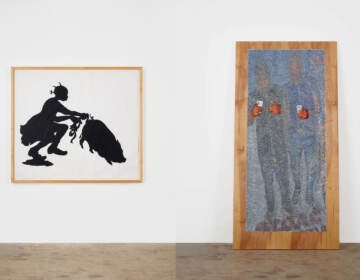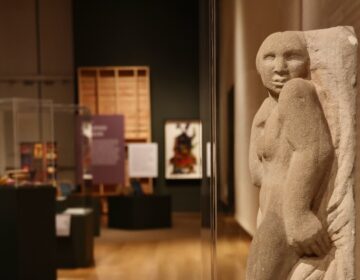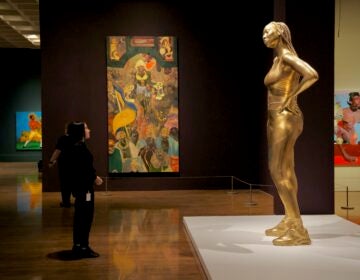Story of poverty activism in Las Vegas premieres at Philly’s BlackStar festival
“Storming Caesars Palace” tells a “forgotten” story of mothers on welfare shutting down a Las Vegas casino in the name of poverty activism.
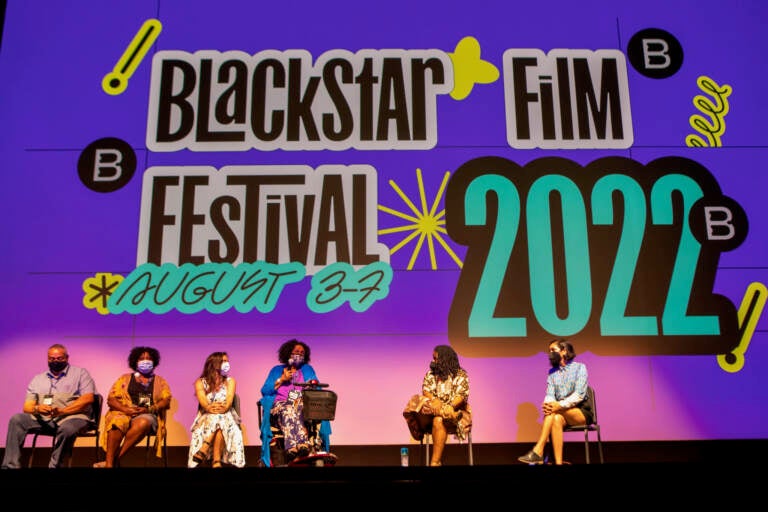
File photo: Ruby Duncan, the hero of the documentary, "Storming Caesar's Palace," speaks on stage during a Q and A session at the Black Star Film Festival. (Daniel Jackson)
This week’s BlackStar Film Festival opened in Philadelphia on Wednesday with the world premiere of a new documentary about a poverty rights activists in Nevada who once shut down the Las Vegas Strip.
In attendance was the star of “Storming Caesars Palace,” Ruby Duncan, a welfare activist and single mother of seven children who in the 1960s organized other mothers receiving welfare into a formidable grassroots movement. They helped bring a food stamps program into the state of Nevada.
The federal assistance program at the time, Aid to Families with Dependent Children (ADFC), was riddled with inequities. When Nevada’s welfare administrator George Miller cut about a third of the benefit recipients, claiming widespread fraud, Duncan and her colleagues became directly confrontational.
They stormed Caesars Palace and occupied the casino, shutting down all gambling activity for about an hour. That pushed Miller to reinstate welfare benefits.
“In Las Vegas, the downtown Strip is the pocketbook of the whole state,” said Duncan, referring to tax revenue generated by casinos. “They own everything.”
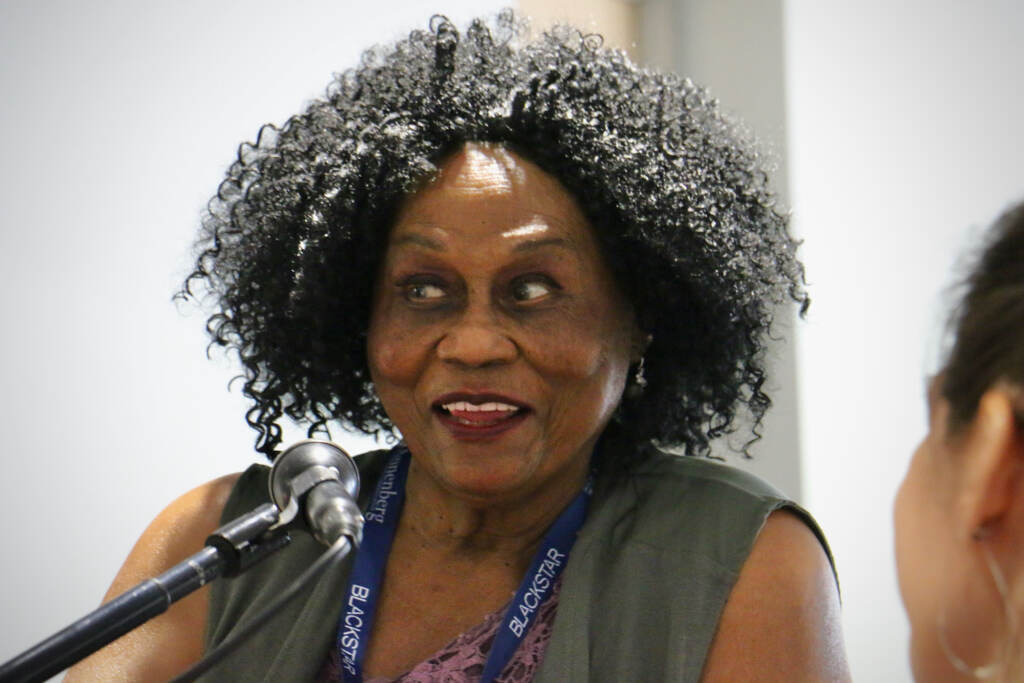
Now 90 years old, a vibrant Duncan came to BlackStar for the screening to meet audiences and watch her younger self take on both the Nevada political establishment and organized crime in a bravado act of civil disobedience.
In hindsight, Duncan said that victory in 1971 now comes with a dose of disappointment: she won that battle, but the war still drags on.
“That was 50 years ago. Of course, it was a victory,” Duncan said. “But you got the younger women coming on that got babies and children. No one speaks up for them. They are afraid to say anything. They don’t want to be known as a welfare mother. They don’t want nothing to do with it. I don’t blame them. I didn’t either. But I did. So we have to come from another direction.”
“Storming Caesars Palace” is based on the 2005 book of the same name by Annelise Orleck. Filmmaker Hazel Gurland-Pooler heard the author being interviewed on NPR station WAMC in 2006, and immediately saw the story as a film.
“It was just so visual that I thought, ‘There’s got to be footage for this.’ It would make such a huge difference to bring this to the screen,” she said. “This was an incredible story that I felt like everyone should know. It’s a piece of forgotten history that needs to come out into the world.”
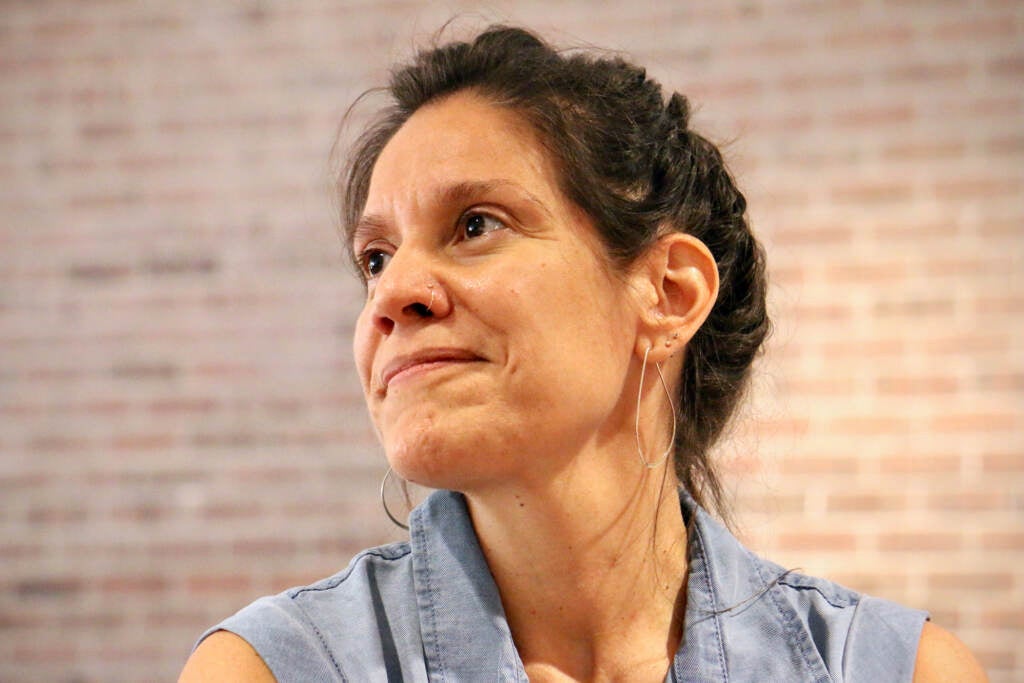
While Ruby Duncan may not be a household name to many, to some it is. During President Jimmy Carter’s administration she was asked to the White House for a consultation; she continues to press and advise Nevada legislators on poverty issues, in particular U.S. Representative Steven Horsford (D); and there is a school named after her in Las Vegas.
Gurland-Pooler leaned into the visual spectacle of Las Vegas in the 70s, using archival film footage of that era to show the glamor of Sin City and putting those images in contrast to the squalor of the housing on the city’s segregated west side, where Black people who came to Las Vegas in the 30s and 40s to work in the hotels and casinos lived in impoverished conditions.
“Las Vegas is really the perfect setting for a story like this because you can see such opulence, the hotels, gambling, all these corporate casinos, which show money being thrown around,” she said. “People go there literally to lose money.”
While Duncan started organizing mothers receiving welfare to take a more active role in poverty issues in Las Vegas, she was not aware that other small movements in cities across the country were happening simultaneously. Ultimately they would coalesce in the National Welfare Rights Organization.
Duncan also had not been aware that the issues in her predominantly Black community were the same across racial lines.
“No one thinks about poor Black, brown and poor white women and children, and poor seniors,” she said. “We’re all poverty stricken. We’re in the same situation.”
Las Vegas had a unique set of economic circumstances that made it ground zero for welfare reform. Much of its economy is based around the casinos, most of which preferred to hire temporary part-time staff, firing and rehiring them seasonally. In order to keep a pool of low-paid employees available year-round, the casinos would help laid-off workers get on welfare.
If workers wanted to keep getting welfare benefits, they could not look for other jobs until the casinos wanted to hire them back, thusly keeping an entire population of largely Black people in a low-income cycle.
“As we say in the film, the biggest beneficiaries of welfare at the time were the casinos, and the state itself,” said Gurland-Pooler.
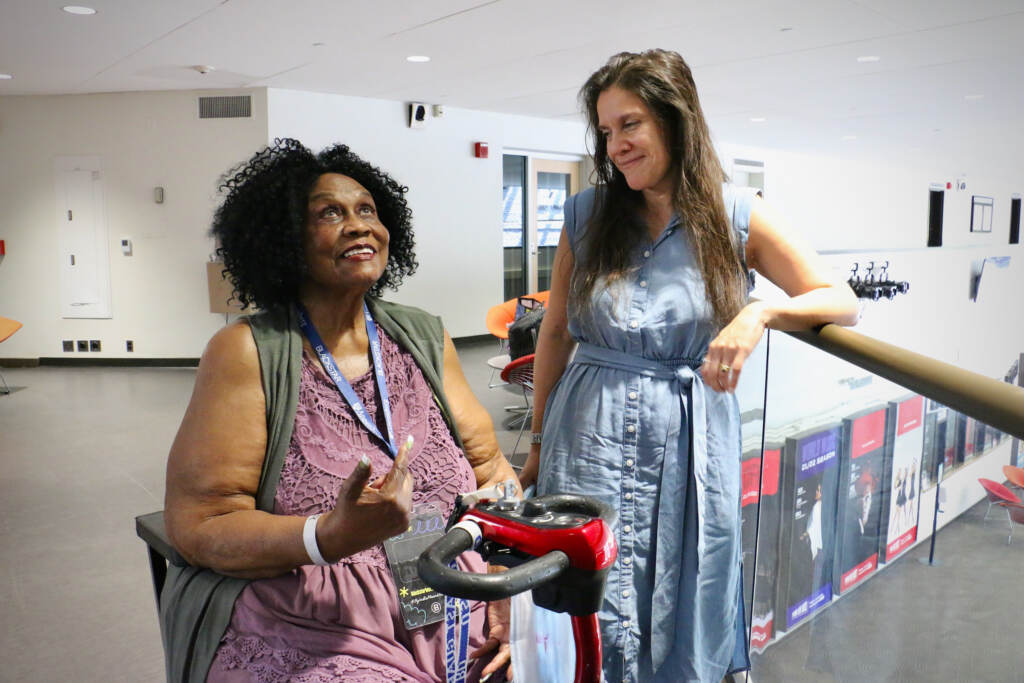
Duncan said the best thing that happened to her in the 1960s was to enroll in job training through the state welfare program. Not just because it taught her a new vocational skill, but mostly because it put her in a room with other mothers receiving welfare.
They talked. They shared stories. They met outside of work. The mothers formed a powerful mutual aid group that turned into a reform movement.
“Those great women, you know, you don’t catch hundreds and hundreds of women coming together like glue, without fighting,” said Duncan. “They are human. I am human. We got, sometimes, a little pissed. We could have a problem, but nothing kept us apart. Our children had to have the best. That’s what made the difference.”
Duncan never stopped fighting. She now gets around using an electric mobility scooter, and in the film we see her rolling through the Nevada state house meeting legislators. While she believes a new generation of people needs to take up the baton of poverty activism, she says she can’t be the one to lead them.
“My brain never stopped. My mind never stopped rolling. I just wished I could pull this out and put it into the heads of people that don’t understand that they have the power,” she said. “I want them to vote.”
The welfare system that Duncan raised her children in no longer exists. The AFDC was shut down by President Clinton in 1997, replaced with the more restrictive Temporary Assistance for Needy Families (TANF).
Public assistance now comes in many forms, including Supplemental Nutrition Program (SNAP, formerly food stamps), and a similar program for Women, Infants and Children (WIC), administered by states which can decide for themselves how to distribute funds.
There was also the Earned Income Tax Credit for low-income families, which was enhanced during the COVID-19 pandemic. But earlier this year Republicans in Congress did not renew the policy. Politicians may or may not bring it back.
“The thing to remember is that poverty is a choice in this country. It’s a policy decision that’s being made by our politicians,” said Gurland-Pooler. “It doesn’t have to be that way.”
“Storming Caesars Palace” will not be screened again during the BlackStar festival. Gurland-Pooler said the documentary will be broadcast on PBS’s Independent Lens next year. Until then she plans to screen it in as many festivals and schools as she can.
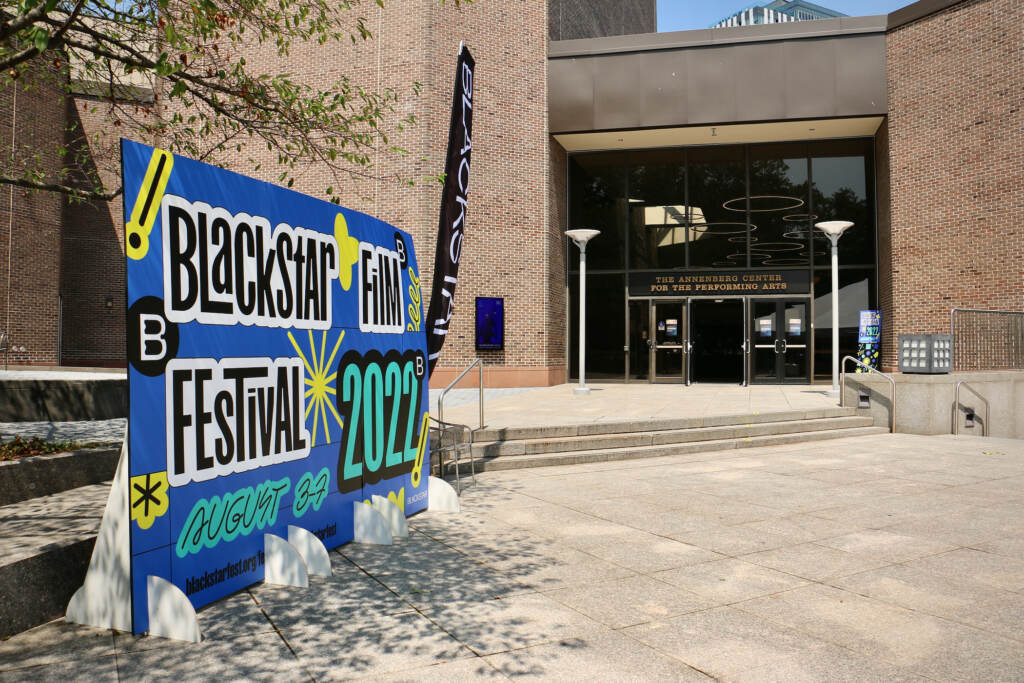
WHYY is your source for fact-based, in-depth journalism and information. As a nonprofit organization, we rely on financial support from readers like you. Please give today.



